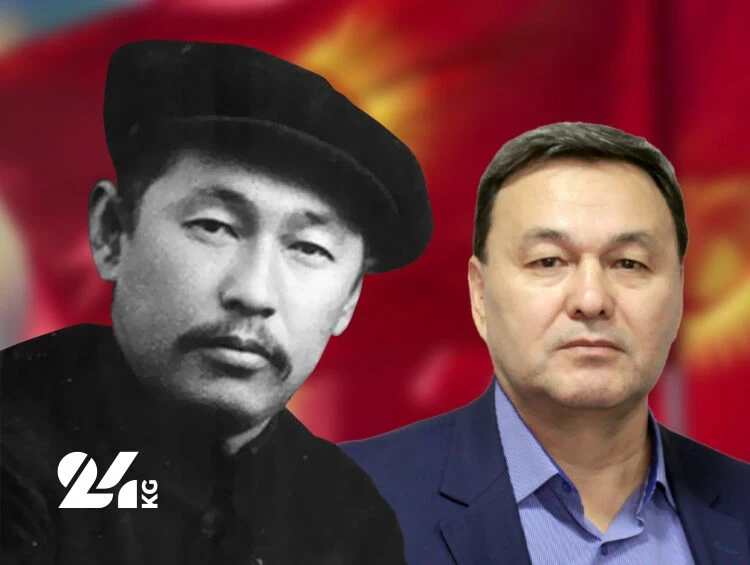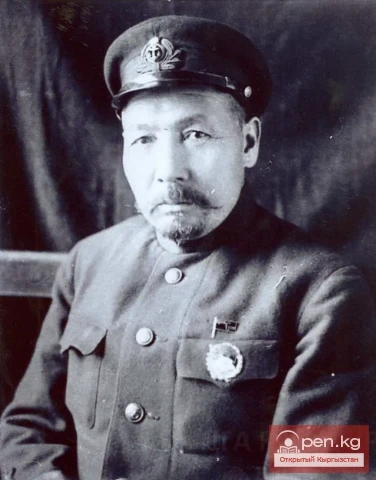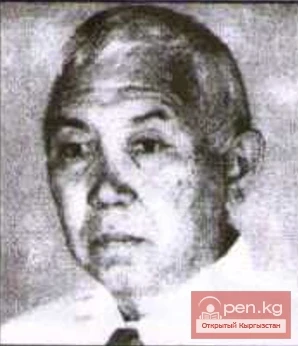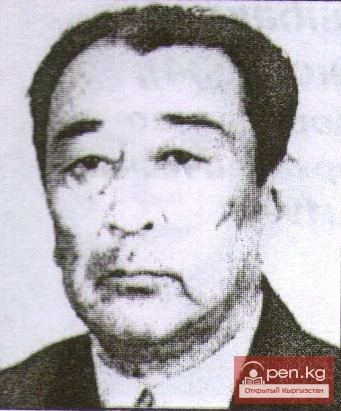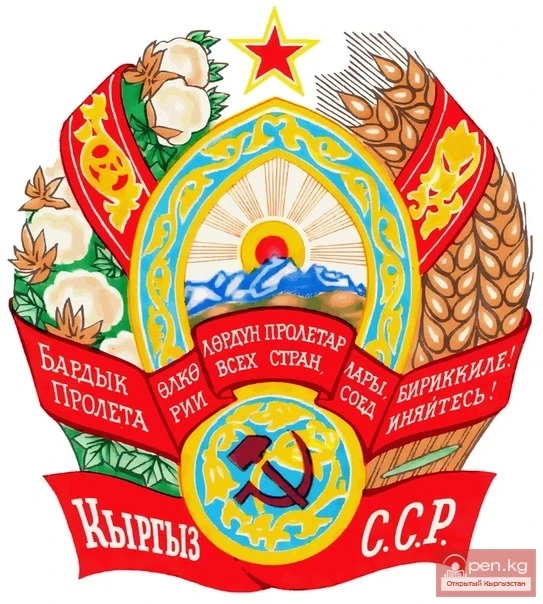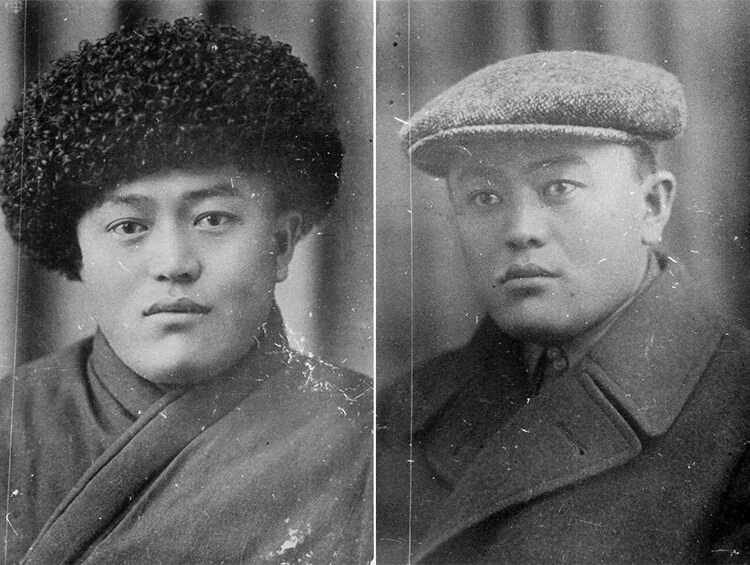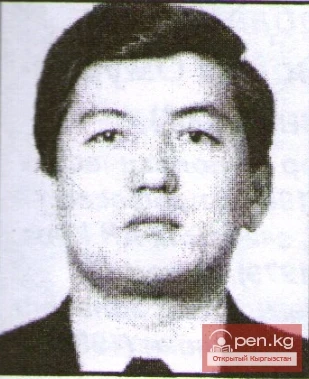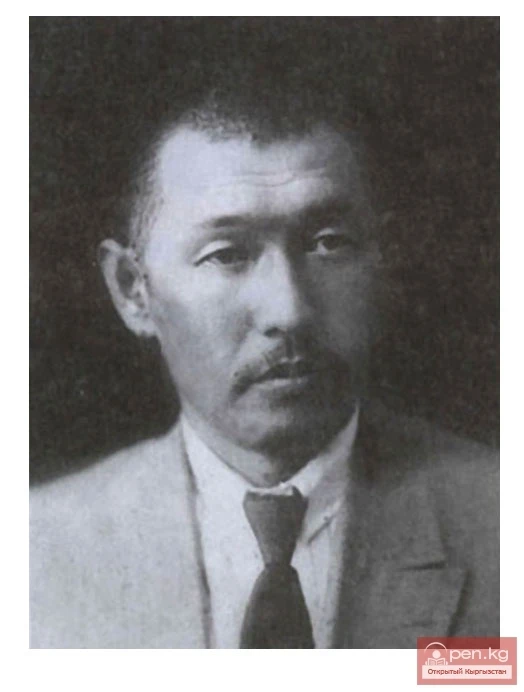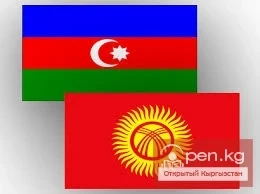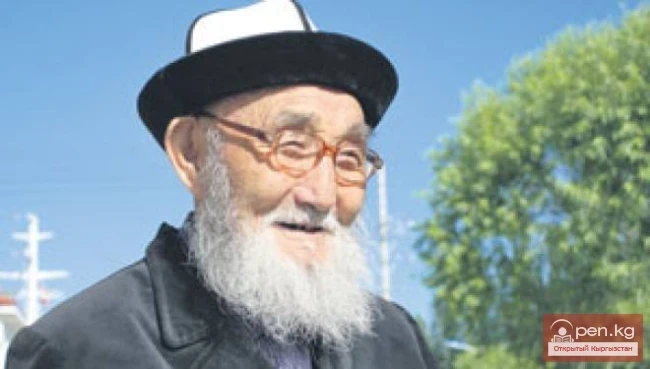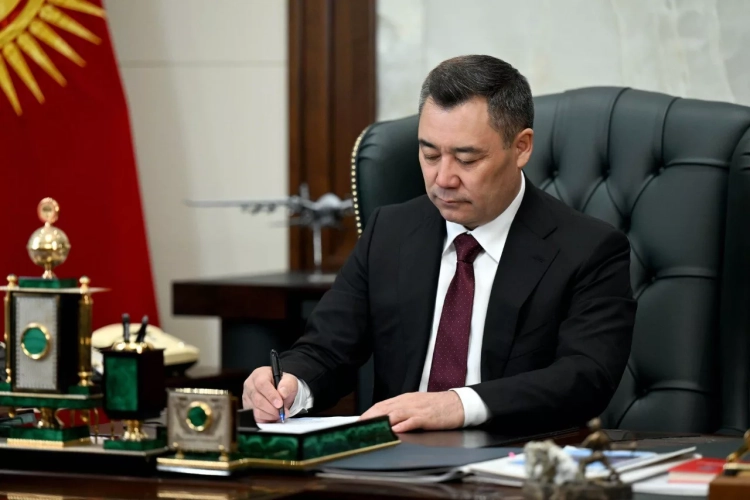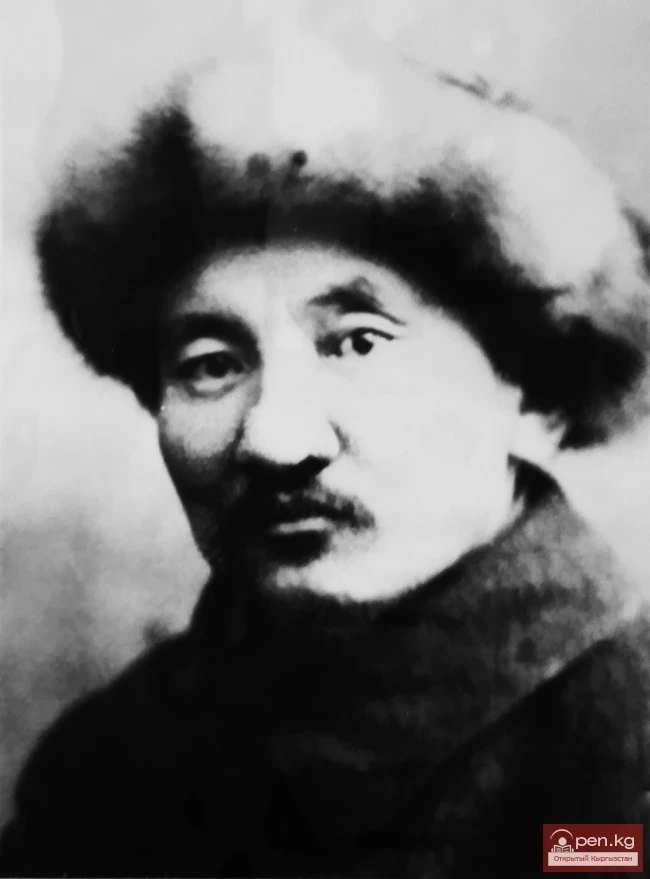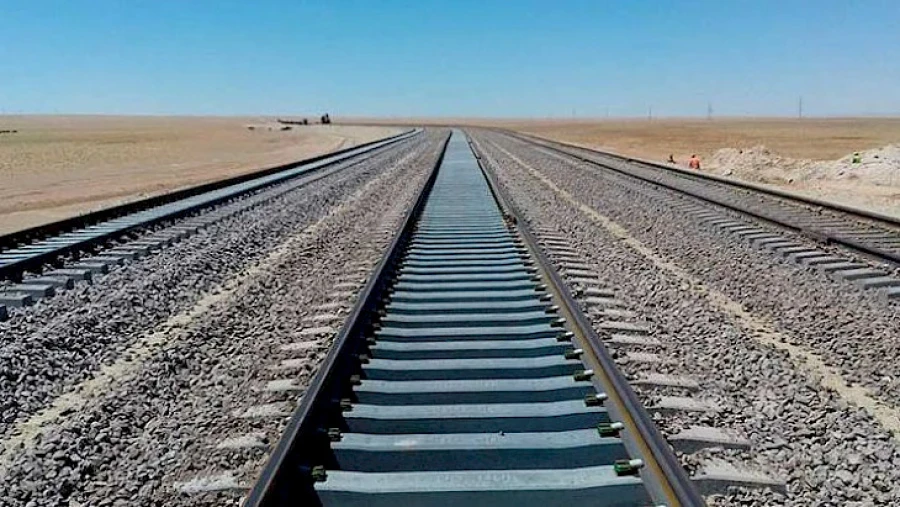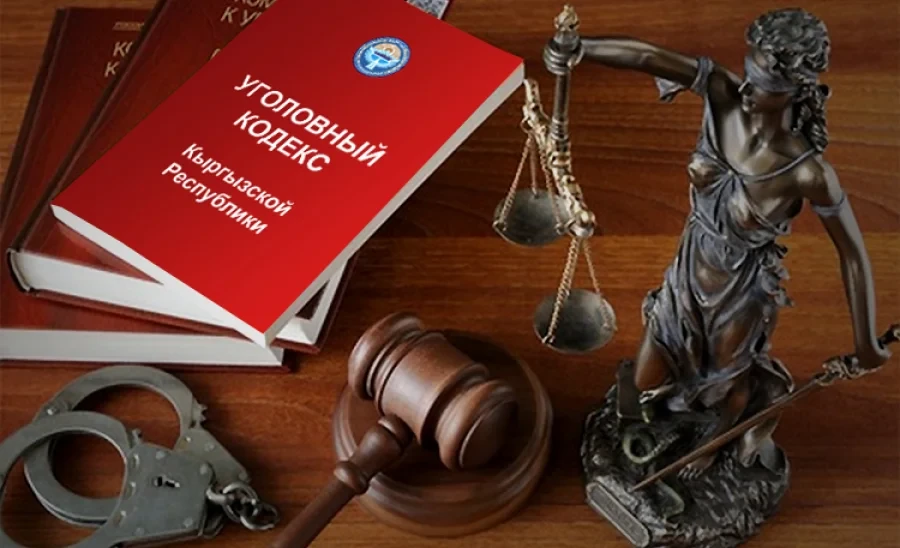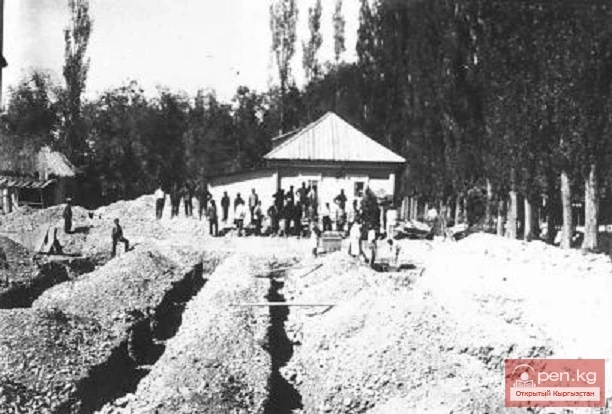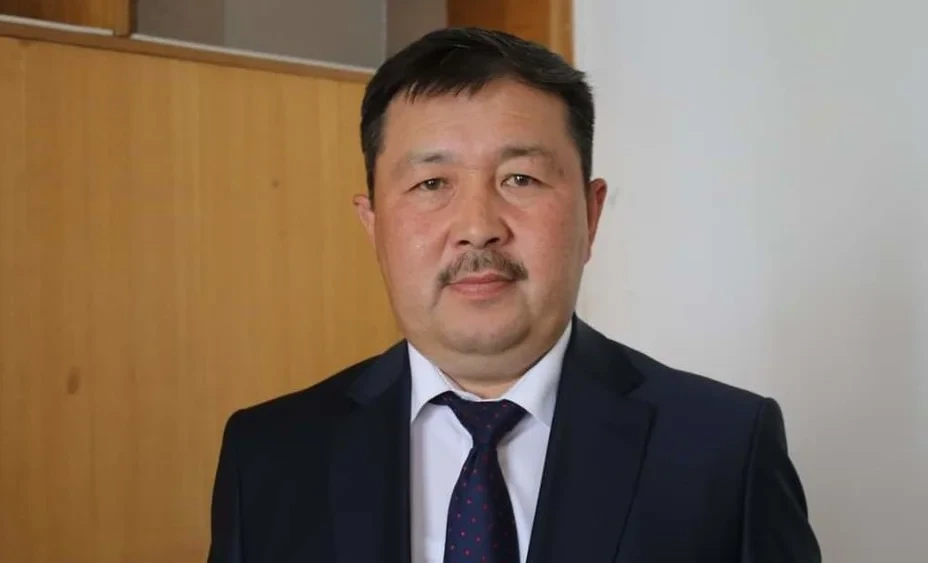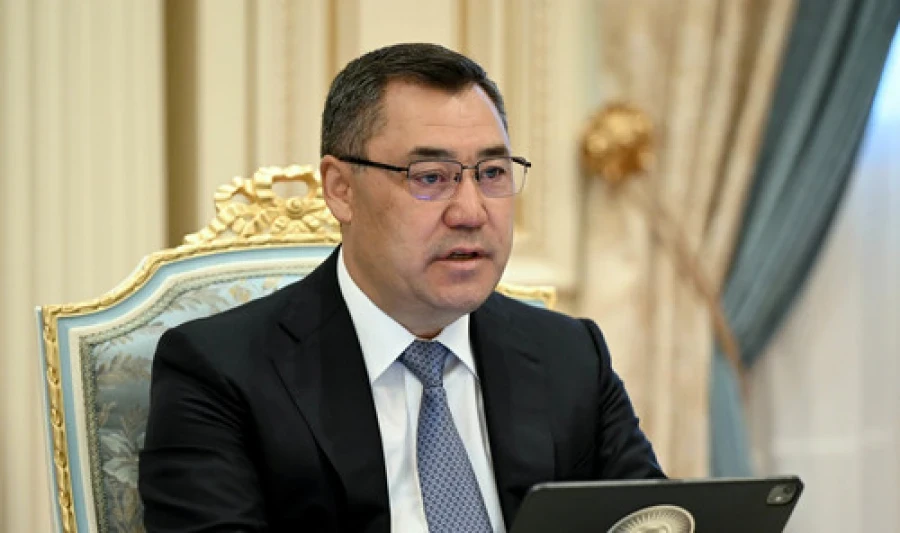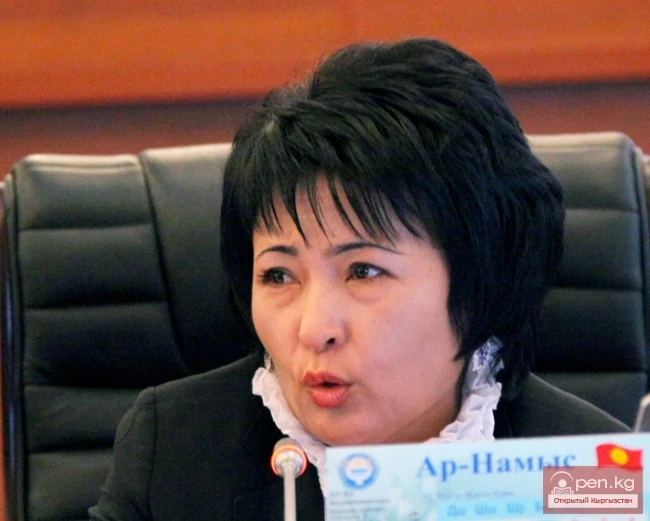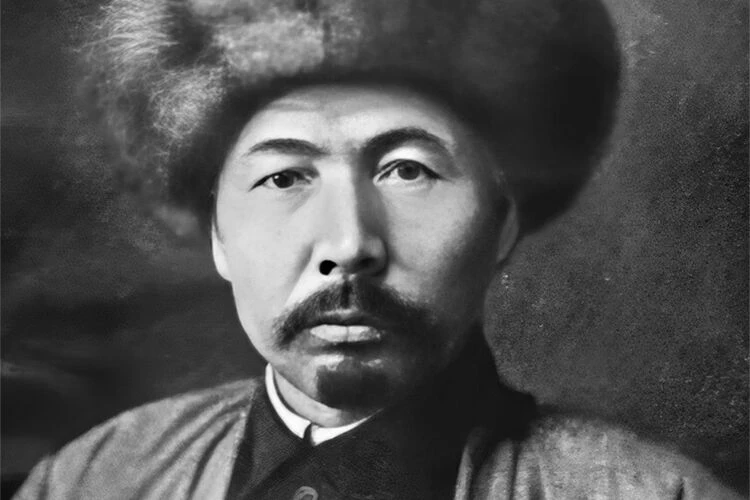
In 2024, the president signed a decree that awarded the title of "Founding Fathers of Modern Kyrgyz Statehood" to five outstanding individuals, among whom were Abdykadir Orozbekov, Imanalay Aydarbekov, Abdykerim Sydykov, Jusup Abdrakhmanov, and Ishenaly Arabayev.
Sadyr Japarov also emphasized the importance of holding events in their honor, stressing that every citizen should honor their memory as a sacred duty.
The editorial team of 24.kg continues to tell the stories of great compatriots, relying on the memories of their descendants.
Abdykadir Orozbekov, being an orphan and a laborer, had no education and did not come from a noble lineage. His life began with hard work in cotton fields and bakeries. The 1917 revolution allowed him to embark on a path that led to the leadership of the republic for 12 years, ultimately becoming a victim of the brutal communist system.
The first president of the Kyrgyz Republic, Abdykadir Orozbekov, remained in the shadows for a long time, and his name was forgotten. However, thanks to the efforts of historians and his descendants, his memory is being revived.
His granddaughter, Yuldushan Urazbekova, shares her story about her grandfather.
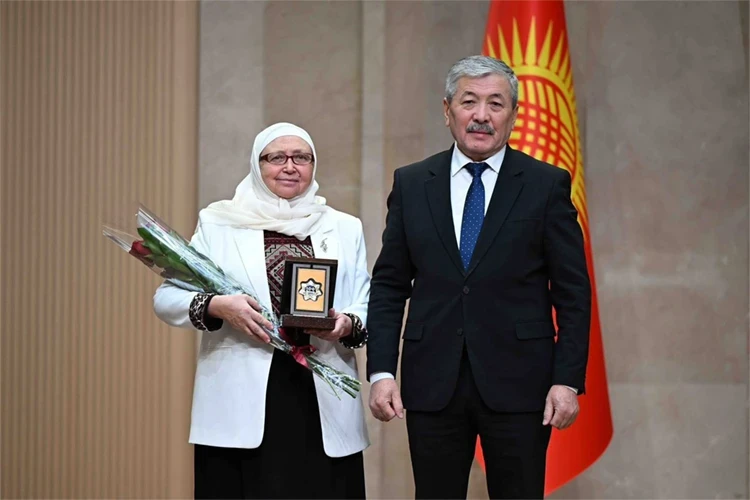
From Orphan to Revolutionary
"Grandfather was born in 1889 in the village of Okhna, which now bears his name. His childhood was full of hardships; he lost his parents early and became an orphan. To feed himself, he worked various jobs for the wealthy, including shepherding and baking flatbreads. His life was incredibly difficult," his granddaughter recounts.
According to her, despite the lack of formal education, Abdykadir displayed curiosity and strength of spirit. In Fergana, where Russian troops were stationed, he learned to speak Russian, and later mastered Uzbek and Tajik.
His ability to communicate with different people became one of the main traits of Abdykadir Orozbekov's character. The severe trials and social injustice tempered his will.
"He worked in a bakery for 12-14 hours without days off," says his granddaughter. "When he advocated for an eight-hour workday, he was even arrested. However, the working class supported him, and he was released."
The 1917 revolution became an opportunity for him to change the world for the better, where people like him would not be oppressed.
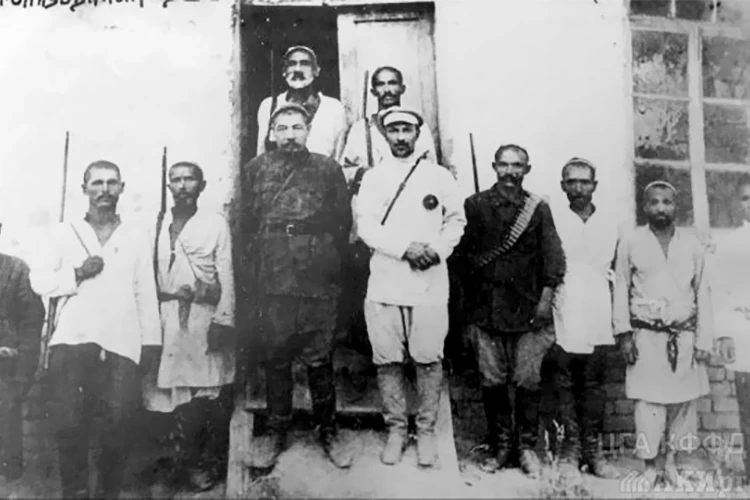
In 1918, he joined the Fergana group of Bolsheviks and became a member of the Communist Party, actively participating in the struggle. In 1919, when war broke out with the Basmachi in the south of the country, he led the local Red Guard.
"He was not only a commander but also a diplomat," emphasizes Yuldushan. "Grandfather understood that among the Basmachi were not only counter-revolutionaries but also patriots deceived by circumstances. He tried to win them over to the side of Soviet power, and to those who would not be persuaded, he advised leaving the country to avoid execution."
Political Career
After the victory of Soviet power, Orozbekov's political career rapidly developed. His experience working with people and understanding the needs of ordinary citizens became highly sought after. He held positions as the chairman of the Chemion Revolutionary Committee, deputy chairman of the Uch-Kurgan District Executive Committee, and chairman of the Marhamat District Executive Committee, as well as overseeing land reform.
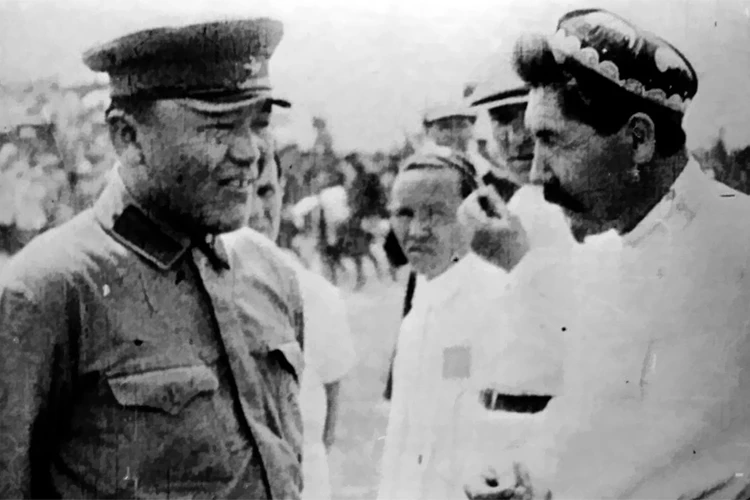
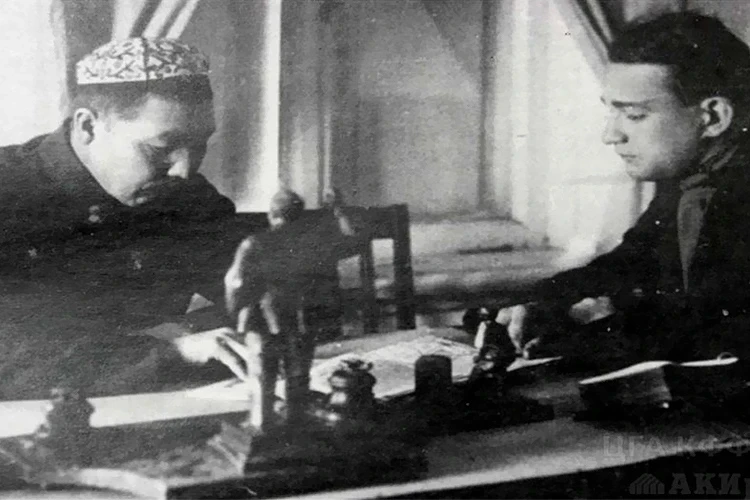
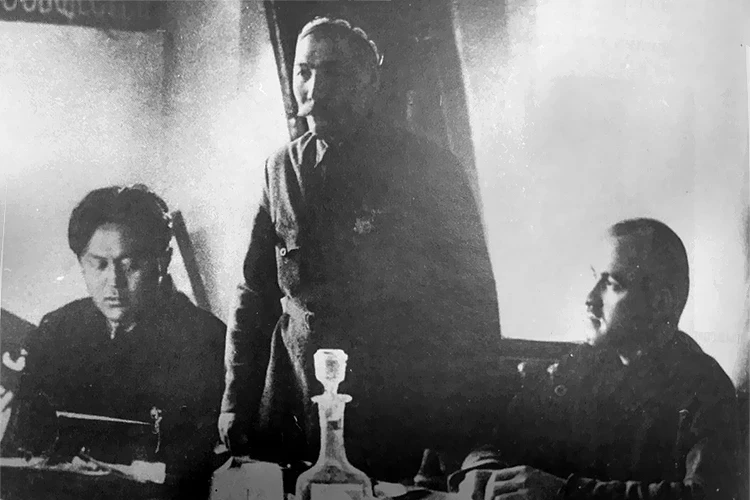
An important moment in his career came in 1924 when he signed a proposal for the creation of the Kara-Kyrgyz Autonomous Region within the RSFSR. This document was prepared by prominent Kyrgyz figures.
The previous proposal made by Abdykerim Sydykov was not signed by Joseph Stalin.
"This was a fateful decision," says Yuldushan. "Some suggested joining the Kazakh SSR, but grandfather insisted on direct subordination to Russia, which, as we see in the case of Karakalpakstan, was the right choice for future sovereignty."
In March 1925, he was elected responsible secretary of the District Committee of the VKP(b) at the district conference, and at the first regional congress of the Councils of the Kyrgyz Autonomous Region, he became chairman of the regional executive committee and a delegate to the All-Russian Congress of Soviets, where he joined the Central Executive Committee of the USSR and became a member of the Council and budget commission.
At the first All-Kyrgyz Congress of Soviets in 1926, Orozbekov was elected chairman of the Central Executive Committee of the Kyrgyz ASSR and held this position until 1937, when the republic became a full-fledged union republic within the USSR.
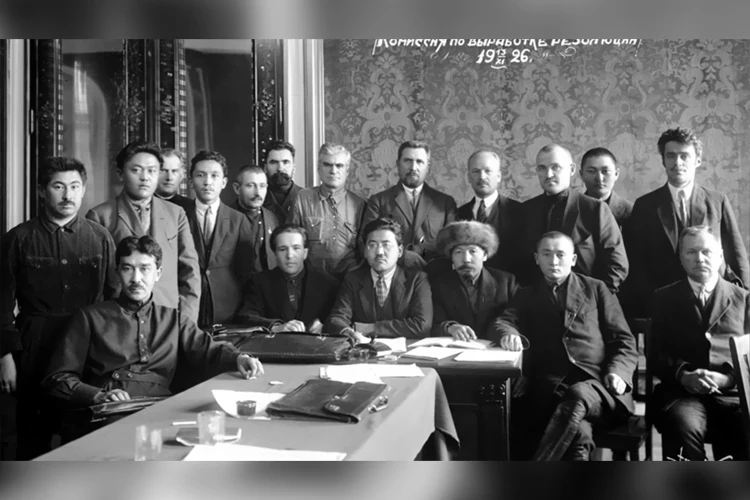
In 1927, he completed courses on party and Soviet construction in Tashkent.
Achievements in History
During his years of work, borders with neighboring states were defined and the first Constitution was adopted. Industrial production increased sevenfold, and grain yields quadrupled. The literacy rate reached nearly 70%. Dozens of factories were built, theaters and educational institutions were opened.
One of Orozbekov's main achievements was the unification of the fragmented ethnocultural territories of the Kyrgyz into a single territorial-administrative structure.
He also actively contributed to the development of the socio-economic and cultural life of the republic. For example, at that time, the settlements of Kyzyl-Kiya, Karavan, and Uch-Korgon belonged to the Fergana district, but he managed to return them to the Osh district after lengthy negotiations with Stalin.
In 1930-1931, Abdykadir Orozbekov headed the Central Commission for the Development of a New Kyrgyz Alphabet and the Lenin Fund for Helping Orphaned Children.
During the grain procurement plan in Issyk-Kul, seeing that the wagons were overloaded, he inquired about their contents. As it turned out, the grain was being sent to the all-union fund.
He ordered to leave wheat for the northern regions, thus saving people from hunger in 1930.
Nasvai and Stalin
"My father, Uzgarysh Urazbekov, remembered his father as a strict but hospitable person," shares Yuldushan. "Whenever relatives visited their village, he always welcomed them, even though there were hotels at that time. He would say, 'My home is your home.' Once, a Russian housekeeper, whom I later met, told me that he was strict and thrifty, but at the same time very kind and generous.
My father recalls that grandfather was always tall, strong, and resilient. He often left early in the morning and returned late at night. Only once did he come to school to see how his son was doing. But upon seeing grandfather, my father was so frightened that he jumped from the second floor and ran away. Grandfather was strict, and the son respected him greatly."
Legends circulated about his simplicity and straightforwardness, Yuldushan laughs. "Grandfather used nasvai. Once, at a meeting in Moscow, Joseph Stalin unexpectedly appeared. Grandfather was taken aback and hid the nasvai under the carpet. After that, the NKVD conducted an examination to determine what this substance was. At the next meeting, Stalin, smirking, said to grandfather, 'You left some kind of gift here, and we had to figure it out later.'"
The Tragedy of 1937
In 1937, "the Great Terror" began in Kyrgyzstan. Orozbekov, like many of his comrades — Jusup Abdrakhmanov, Bayaly Isakiev, and others, found himself in danger.
On September 5, 1937, a telegram arrived from Moscow signed by Joseph Stalin, authorizing the arrest of the chairman of the Central Executive Committee of the Kyrgyz SSR, Abdykadir Orozbekov.
September 20, 1937, became a fateful day.
"When Chon Ata was leaving the house, his son, my father Uzgarysh, ran out to meet him. He was only 9 years old," Yuldushan recounts with pain. "Grandfather placed his hand on his son's shoulder and said, 'You are already grown up. I will go to the NKVD now and explain to them that I have devoted my whole life to Soviet power and have not engaged in any anti-Soviet activities.' This was their last meeting."
The family home was located opposite the NKVD building. He went inside and never came out again.
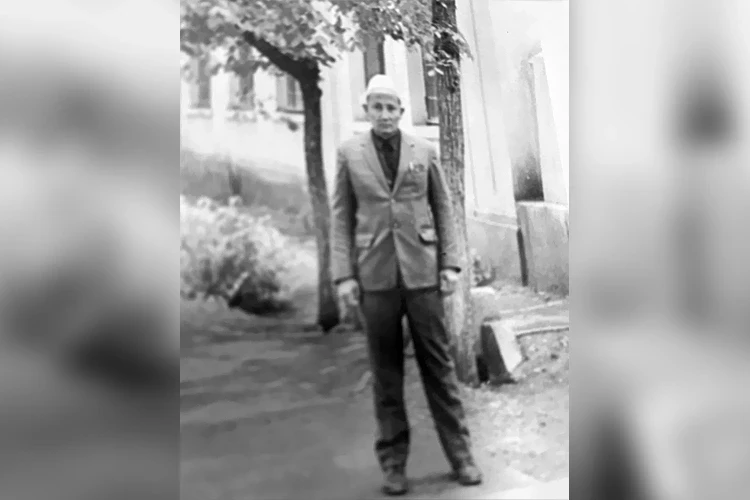
Months of terrible torture began. He was accused of counter-revolutionary activities and participation in the "Social-Turan Party."
They tortured him until he confessed. However, grandfather was a true patriot; he did not sign the protocol and did not incriminate anyone, despite the horrific torture.
Yuldushan Urazbekova
He was tortured until he had no teeth or nails left. When he lost consciousness, they poured cold water on him and continued to torment him. Once, unable to bear it, he ripped a chair and hit the investigator. After that, the torture became even more brutal.
In May 1938, at the age of 49, Abdykadir Orozbekov, who was called aksakal for his wisdom and stature, died in the NKVD prison hospital. His burial place remains unknown to this day.
Many mistakenly believe that my grandfather was shot along with other founding fathers and that he is buried in "Ata-Beyit." This is not true. He died in the hospital after monstrous torture.
Yuldushan Urazbekova
"There is a possibility that he is buried in the Ala-Archa cemetery. Specialists and historians have already gone there. Now funds are needed for research, as there were 70-80 bodies in the pit. It would be good to establish the exact burial place of grandfather," adds Yuldushan Urazbekova.
The Stigma of Enemy of the People
Yuldushan says that since September 20, 1937, her father's life also changed dramatically.
"Abdykadir Orozbekov had two wives. From the first, Khavakhan Akhunova, he had two children — Erkingul Urazbekova and son Uzgarysh Urazbekov. From the second, Adalyat Baymatova, he had a son Kemel Urazbekov. They were given only a month to vacate the house. All property was confiscated," she recalls her father's stories.
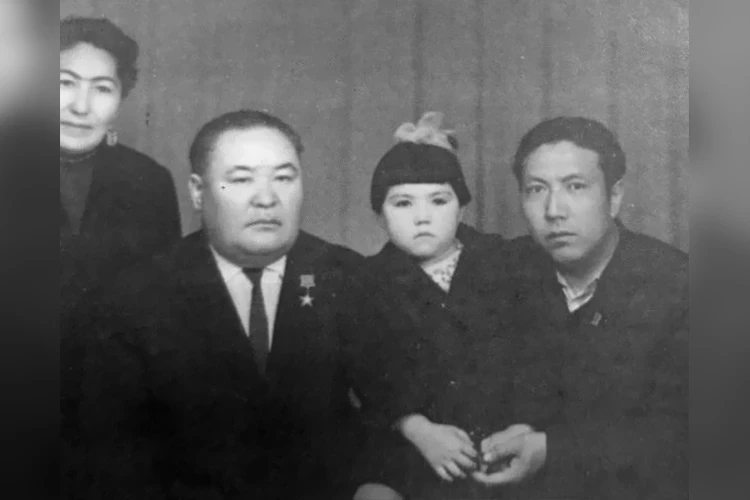
At school, my father's classmates found out who he was the son of and refused to study with him, calling him "the son of an enemy of the people." His sister Erkingul was also bullied.
Yuldushan Urazbekova
The girl even hit a boy in response to the bullying. Fortunately, the school principal, who turned out to be wise and brave, said that children are not responsible for their parents.
The children were left practically on the street, their mothers began a new life. Grandfather's younger brother took his son and daughter under his care.
By the way, Abdykadir Orozbekov, foreseeing the "Red Terror" in Moscow and Leningrad, tried to find an orphanage, understanding that his children could become homeless. But while he was alive, he never dared to send them to an orphanage.
"When my father was a teenager, he went to get a passport. The secretary was issuing him the document when a lieutenant approached and, hearing who he was, threw all the papers out the window. At that moment, it was raining outside, and the documents got wet, so he could never get a passport," recounts Yuldushan Urazbekova.
To survive, my father was forced to take his uncle's surname — Umurzakov. Only in this way, with a different surname and without documents, could he survive the totalitarian regime.
At 21, he got a job in a mountain rescue squad, where he worked for several years. The chief, Chernikov, once approached him and said: "You are the son of Orozbekov. I received an order to dismiss you within 24 hours. I had no right, but I'm sorry, I have no other choice," — and he was fired.
This is what the totalitarian regime leads to: the children of "enemies of the people" could not live, study, and work normally.
Without documents, father and his sister had to flee to Uzbekistan. He was 26 years old. In Tashkent, he tried to study in evening school but did not finish, as it was very difficult to combine study and work," added Yuldushan Urazbekova.
The Price of Life
The name of Abdykadir Orozbekov was rehabilitated in 1956, posthumously. His family received compensation of 60,000 rubles.
Father met with the first secretary Iskhak Razzakov, who welcomed him warmly and noted that my father was the son of a respected person, inviting him to live in Frunze and promising to provide an apartment.
However, my father refused and returned to Tashkent, where his relatives remained. They lived in Uzbekistan until 1966, then moved to Osh.
I was born in Kyzyl-Kiya, and my younger sister was born in 1956 in Uzbekistan.
"My aunt Erkingul Urazbekova worked her whole life in the trade system and was awarded the Order of the Red Banner of Labor," said Yuldushan Urazbekova.
"In 1996, our family moved from Osh to Bishkek," she added.
"I got a job at the Ministry of Agriculture and immediately went to the Prosecutor's Office. They only gave me documents for one day to familiarize myself, confirming that Orozbekov was indeed the chairman of the Central Executive Committee and was repressed, and in 1956 he was rehabilitated and all charges against him were dropped.
Then I applied to the government for a request to provide us with an apartment. They thought that Orozbekov had no descendants. Even when they unveiled a bust of my grandfather on the alley near the Historical Museum, I was not invited, as they did not know where to find me. I remember the words of a colleague: 'You are sitting at work, and they are unveiling a monument to your grandfather...'
And my father, who lived in Vorontsovka, was invited. That day we met with the descendants of Jusup Abdrakhmanov, Bayaly Isakiev, and others.

The Return of the Name
Only in independent Kyrgyzstan did the full restoration of historical justice begin. Currently, one of the central streets of Bishkek, his native village, and school bear the name of Abdykadir Orozbekov. In December 2024, he was posthumously awarded the highest title "Hero of the Kyrgyz Republic."
"Now, thanks to the government and the president, the study of the history of the founding fathers has begun. The period from 1925 to 1937 was a blank spot in the history of Kyrgyzstan, as there was no information about Orozbekov.
For the 100th anniversary, a museum was opened in Pulgon, where his personal belongings are kept. For the 120th anniversary, a book dedicated to grandfather was published, and a house-museum is being built in his native village.


By the way, in grandfather's personal sheet, it is indicated that he is Abdukadir Urazbekov. With this surname, he worked, led the state, and with this surname, he passed away in the NKVD hospital. We carry this surname," says Yuldushan Urazbekova.
"In the 1980s, when a street in Bishkek was renamed, grandfather began to be called Abdykadir Orozbekov instead of Urazbekov," she adds.
For establishing Soviet power in the Fergana Valley, Abdykadir Orozbekov was awarded the "Gold Badge" of the Turkestan Republic in 1924. On May 3, 1932, he received the Order of the Red Banner of Labor of the Uzbek SSR for achievements in the development of the republic.
Posthumously, Orozbekov was awarded the "Shumkar" order, which was presented to his granddaughter on February 20, 2025.
The story of Abdykadir Orozbekov is not just a biography. It is a tragic saga of how an ordinary person from the people was able to create a state, and how an inhumane system could destroy its own creator. It is a lesson about the strength of spirit, loyalty to principles, and about the memory that, despite temporary trials, still overcomes oblivion.

